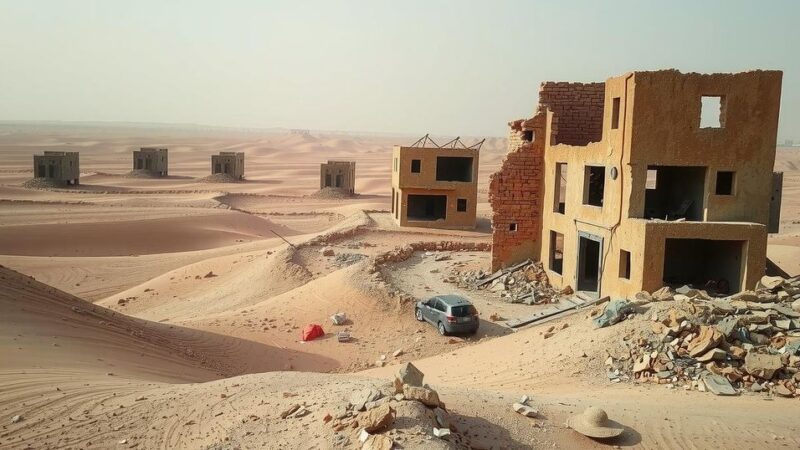A significant power outage in Buenos Aires on March 5, 2025, affected over 600,000 customers. Initiated by a high-voltage line failure amidst a summer heat wave, the outage disrupted public transport and traffic management. The incident underscores ongoing challenges in the Argentine electricity sector and the need for investment in infrastructure.
On March 5, 2025, a significant power outage in Buenos Aires left over 600,000 customers without electricity. The failure initiated at 12:40 p.m. following a high-voltage power line failure, just hours after authorities had restored service from an earlier outage. This blackout occurred during a severe summer heat wave, further straining the city’s electrical grid as energy demand surged.
The outage, attributed to the shutdown of several substations, was managed by Edesur, a major electricity supplier serving Buenos Aires and its suburbs. Technicians worked diligently to restore power, while the heat index reached a staggering 42 degrees Celsius (107.6 degrees Fahrenheit). The heat exacerbated the impact of the blackout, causing chaos throughout the city and leading municipal authorities to deploy hundreds of traffic officers to manage the situation.
As a result of the outage, all subway services ceased, and approximately 50 traffic lights failed, creating significant challenges for commuters. Emergency response units assisted individuals trapped in elevators as pedestrians faced extreme heat on congested sidewalks in central Buenos Aires. While service was gradually restored later that afternoon, complications persisted for two train lines.
Power outages have become increasingly common in Argentina, particularly during peak summer demand. Previous governmental policies maintaining artificially low electricity prices contributed to inadequate investment in the electricity sector. Conversely, under the libertarian administration of President Javier Milei, utility rates have surged, attracting foreign investment aimed at enhancing energy infrastructure.
The power outage in Buenos Aires on March 5, 2025, affected over 600,000 customers and highlighted the ongoing challenges faced within the local electricity sector. The incident, resulting from a high-voltage line failure amidst a summer heat wave, caused transportation chaos and raised questions about previous energy policies. Moving forward, the need for effective investment in energy infrastructure remains crucial to ensure reliability during peak demand periods.
Original Source: apnews.com






